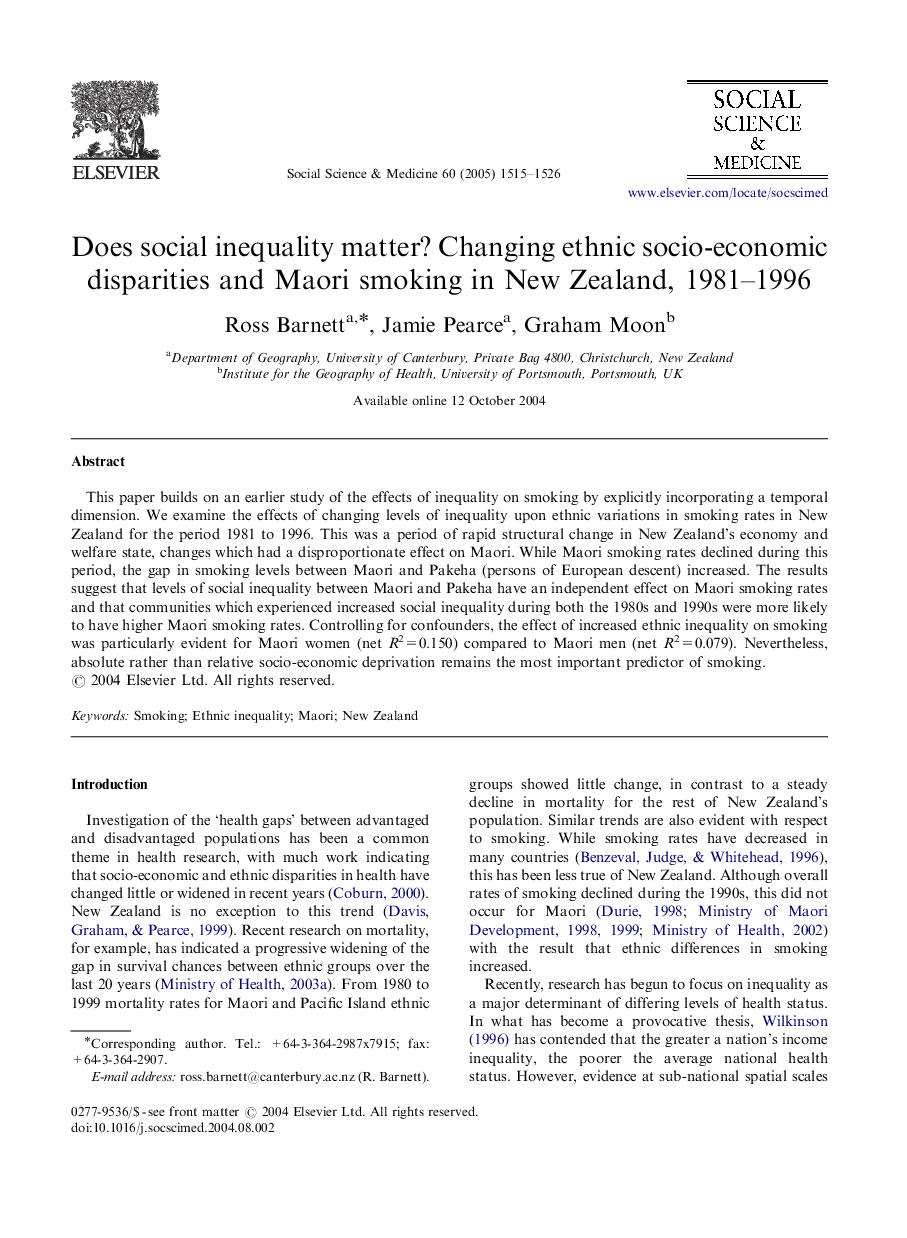| Article ID | Journal | Published Year | Pages | File Type |
|---|---|---|---|---|
| 10473266 | Social Science & Medicine | 2005 | 12 Pages |
Abstract
This paper builds on an earlier study of the effects of inequality on smoking by explicitly incorporating a temporal dimension. We examine the effects of changing levels of inequality upon ethnic variations in smoking rates in New Zealand for the period 1981 to 1996. This was a period of rapid structural change in New Zealand's economy and welfare state, changes which had a disproportionate effect on Maori. While Maori smoking rates declined during this period, the gap in smoking levels between Maori and Pakeha (persons of European descent) increased. The results suggest that levels of social inequality between Maori and Pakeha have an independent effect on Maori smoking rates and that communities which experienced increased social inequality during both the 1980s and 1990s were more likely to have higher Maori smoking rates. Controlling for confounders, the effect of increased ethnic inequality on smoking was particularly evident for Maori women (net R2=0.150) compared to Maori men (net R2=0.079). Nevertheless, absolute rather than relative socio-economic deprivation remains the most important predictor of smoking.
Related Topics
Health Sciences
Medicine and Dentistry
Public Health and Health Policy
Authors
Ross Barnett, Jamie Pearce, Graham Moon,
